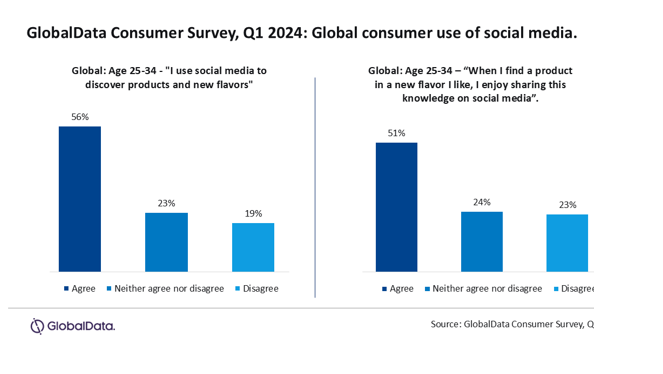
Rising consumer interest in diet, health and personalisation can present opportunities to food brands this year.
But R&D teams and marketeers need to target their innovation and marketing endeavours with precision.
Women’s health has long been under-researched and there are openings for brands to create new products and run new marketing initiatives to meet women’s unique health needs.
In the supplements market, product ranges catering to reproductive and hormonal health concerns are expanding into women’s fitness, digestion and sleep – all of which require different supplements to men.
Brands like Women Best solely target women, providing them with supplements to support their dietary needs with functional benefits such as energy, focus and stress relief.
Unilever, with its SmartyPants Vitamins range, offers multivitamins and pre and probiotic supplements that cater specifically to women’s health needs. The women’s supplement market has seen double-digit value growth over the last two years, according to research by GlobalData, Just Food’s parent.

US Tariffs are shifting - will you react or anticipate?
Don’t let policy changes catch you off guard. Stay proactive with real-time data and expert analysis.
By GlobalDataWhilst the health benefits of supplements are harnessed in products such as vitamins and protein bars, consumer packaged goods manufacturers could explore opportunities to develop new food products using supplement ingredients. One such opportunity is to recognise the interconnectivity of health concerns and release products aimed at addressing multiple wellness concerns at once.
With 22% of the world’s population expected to be over 60 years old by 2050, according to WHO, there will be growing demand for food products that support this cohort’s desire for a long, healthy and active life.
The sales of meal kits with claims around health management grew in value terms by 67% from 2016 to 2023, GlobalData figures show.
As older adults become more proactive about their health, they are choosing products that align with their wellness goals, including dietary supplements and foods rich in vitamins and nutrients that support longevity.
Thailand-based food manufacturer Chin Huay has responded with a selection of snacks formulated with probiotics, which support senior consumers’ dietary needs.
UK-based UDA is a business that markets “science-based longevity coffee”. Its drinks contain supplements said to help fight aging. These include NMN, which is said to increases metabolism and aid DNA repair; cognitive enhancer L-Theanine; quercetin, an anti-senescence and anti-inflammatory ingredient; and ashwagandha, which proponents say reduce fatigue and stress.
We are seeing a broader societal shift towards preventative health measures and lifestyle improvements, a shift that gained traction in the aftermath of the Covid-19 pandemic.
Personalised health and wellness solutions from companies that provide health advice from the analysis of data are growing in popularity.
US business Everlywell, which received the backing of an investor on TV business pitch programme Shark Tank, provides at-home test kits that the company says check age- and gender-related conditions with the aim of providing consumers specific lifestyle recommendations.
Away from health, the ubiquity of foreign travel and the rise in social media usage have exposed consumers to global cuisines and flavours. These trends can provide companies with an opportunity to expand their product ranges and tap into the growing interest in more diverse flavours.
According to a GlobalData consumer survey conducted in the first quarter of 2024, some 56% of 25- to 34-year-olds use social media to discover products and new flavours.
Meanwhile, 51% of the same age group agree with the statement ‘when I find a product in a new flavour I like, I enjoy sharing this knowledge on social media’.

Foodservice operators such as UK-based Los Mochis have been successful in merging Japanese and Mexican cuisines using ingredients such as chipotle and kombu broth to create a chipotle miso soup, exposing their customers to bold, new flavour choices.
Food and beverage trends in 2025 will reflect a complex interplay of functional health and wellness, digitalisation and flavour choice. Innovation will not only cater to consumers’ immediate health needs but also prioritise health longevity. These trends will present opportunities for brands to sell more value-added and premium products to meet the evolving expectations of consumers in a rapidly changing marketplace.





